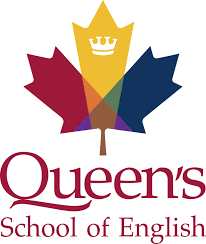 While English is the most common language in the world, it’s spoken by just 18 percent of the global population. That number is growing, particularly in countries like Canada where it’s an essential life skill – whether for study, work, or basic life needs.
While English is the most common language in the world, it’s spoken by just 18 percent of the global population. That number is growing, particularly in countries like Canada where it’s an essential life skill – whether for study, work, or basic life needs.
As more and more people immigrate to Canada, particularly from countries with primary languages other than English, interest is increasing in English language training. Locally, newcomers have a few different options to access language training to help them learn language basics, but advancing from basics to proficiency requires focused time and attention.
For refugees, asylum seekers, and newcomers who may wish to begin post-secondary studies or head directly into the world of work, For refugees, asylum seekers, and newcomers who may wish to begin post-secondary studies or improve their skills for a new Canadian career, Queen's School of English's 12-week full-time English for Academic Purposes program is an excellent opportunity for growth.
This program includes 22.5 hours of study per week, with classes focused on discussion and vocabulary, a lab spoken class, and, as skills improve, a course focused on English for academic purposes and an elective that allows students to practice their English skills in a specific area of learning like photography, sports, or gardening. Classes tend to range in size from eight to 16 students, offered by teachers who possess either a TESL (Teaching English as a Second Language) certification, or an Additional Qualification (AQ) course called Teaching English Language Learners.
However, those who may have fled war or persecution may not have the resources to afford the language training which they need to secure meaningful work, or to start studies which would help increase their earning potential.
“We went through a visioning exercise, and we identified the idea of supporting our local community as one of the values that drives our work,” said Karen Burkett, MEd’05, Ed’02, Director of the Queen’s School of English. “So, a few years ago we reached out to Immigrant Services Kingston and Area (ISKA) and Kingston Employment and Youth Services (KEYS) to ask how we could help with local refugees who needed language training.”
 Individuals nominated by ISKA or KEYS for language training go through pre-testing and complete an orientation. They are then accepted for a maximum of three terms of training and up to one year of studies, with some longer study periods on a case-by-case basis, at no cost to the learner. Within a month of their connection to Queen’s, the students have usually started their English program.
Individuals nominated by ISKA or KEYS for language training go through pre-testing and complete an orientation. They are then accepted for a maximum of three terms of training and up to one year of studies, with some longer study periods on a case-by-case basis, at no cost to the learner. Within a month of their connection to Queen’s, the students have usually started their English program.
“Funding for this program is intended to empower deserving individuals within our local community, removing financial barriers and allowing them to access high-quality English language education at QSoE,” said Carly D’Amico, PME’20, Business Development Manager. “Through this initiative, we aim to create a supportive and inclusive environment that fosters growth and success.”
Since launching this special intake in 2021, the School of English has helped improve the English skills of 10 learners from countries such as Syria, Afghanistan, Iraq, Ukraine, and more. And the benefit hasn’t only been to those nominated to attend.
“Our students have appreciated the increased diversity within the program, which has enhanced their learning experience,” said Amie Pilgrim, Ed’10, Academic Manager. “They are pleased to have classmates with different backgrounds and life experiences.”
Those life experiences can be quite harrowing, in some cases. One learner, Raed ‘Roy’ Khashba, fled the civil war in his home country of Syria in 2016. After walking to Türkiye and arriving in a Greek refugee camp by way of an overcrowded dinghy, he spent six years in a refugee camp waiting for permission to come to Canada. He began learning English in the camp and used his rudimentary language skills to help others. Since arriving in Kingston and being offered a spot in the English for Academic Purposes program, he has been able to further develop his English, and continue helping as an interpreter.
In addition to widening access for refugees and newcomers, the Queen’s School of English has also made some pricing changes to increase equitable access to courses for many international students. The School recently implemented a national scholarship program tied to a country’s economic state, with a goal of widening access to their programs for those in less wealthy countries.
Browse all Queen’s School of English offerings on their programs page.